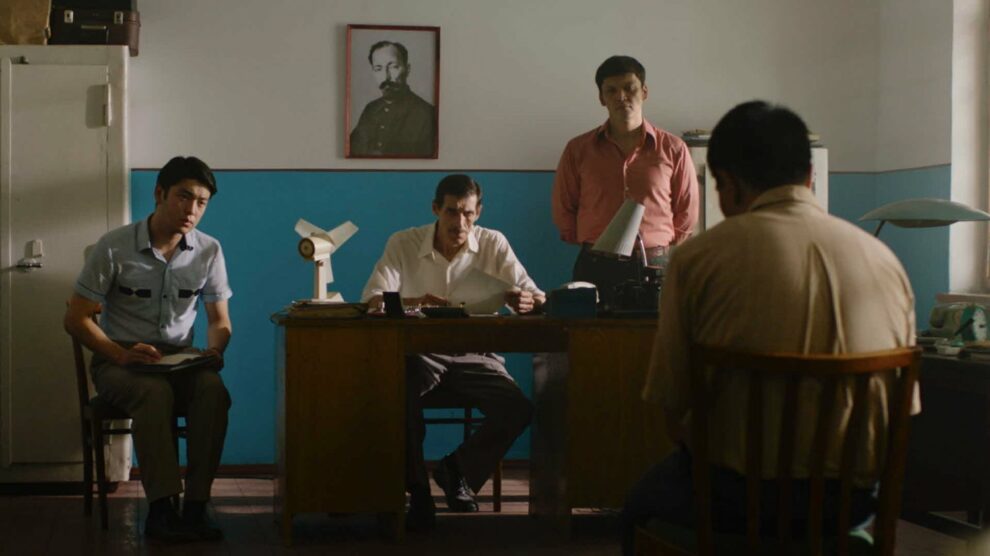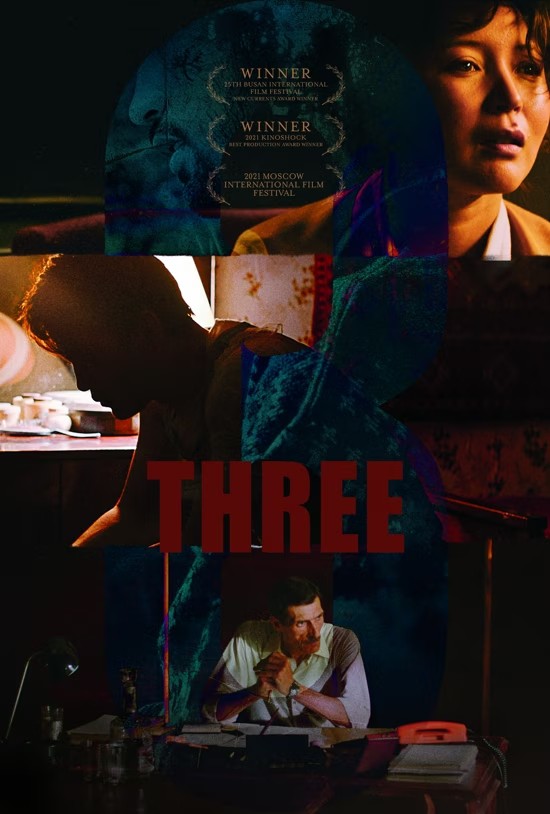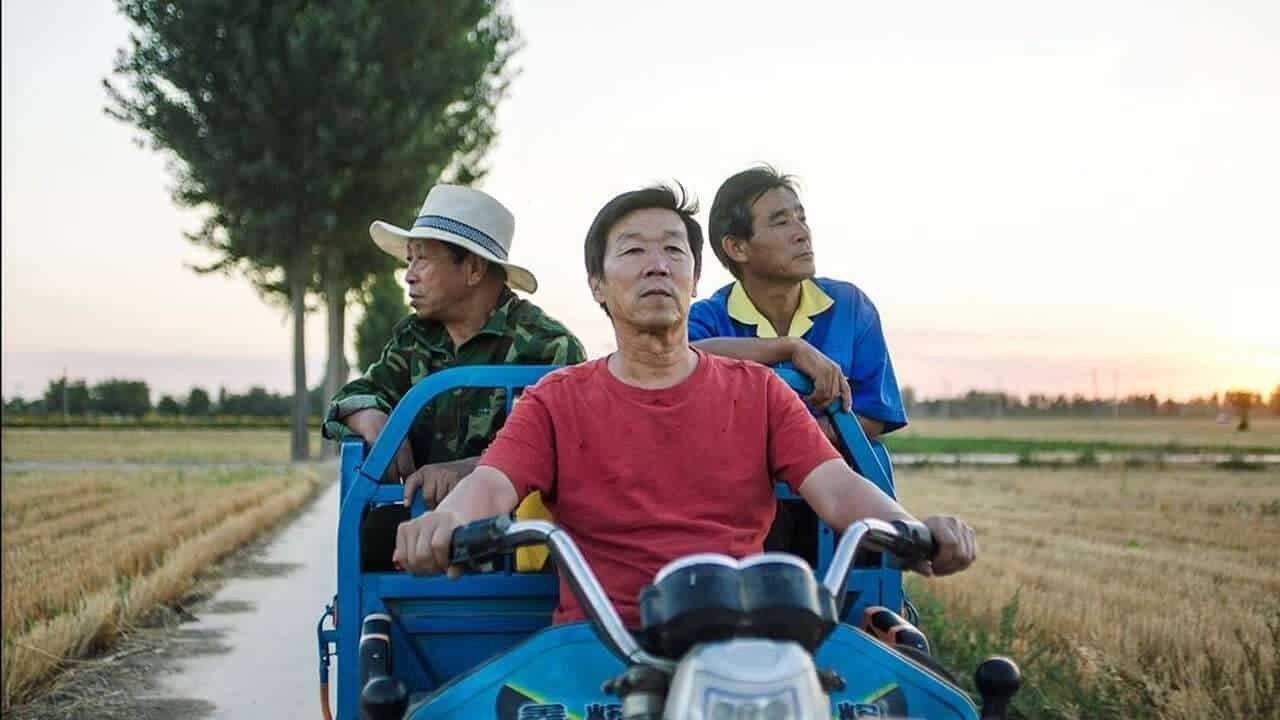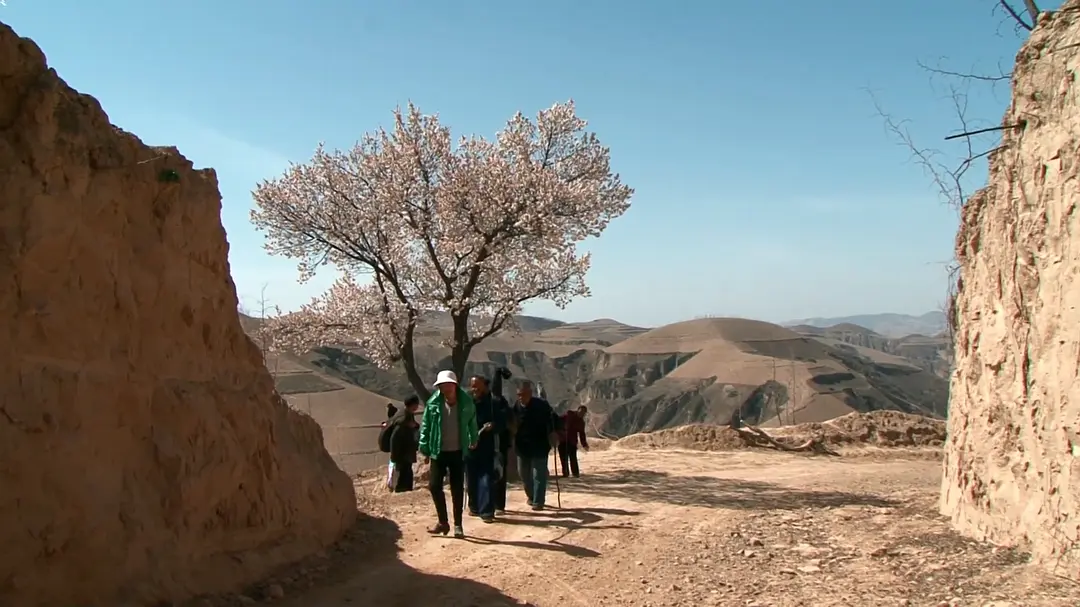Winner of Best Film at the New Currents Section in Busan in 2020, “Three” is a co-production between Kazakhstan, South Korea, Uzbekistan, and Russia, and is based on the true story of Nikolai “Metal Fang” Dzhumagaliev, a Kazakh cannibalistic serial killer, who was convicted of murdering seven young women between 1979 and 1980.
After a shocking introductory scene, where Alik Korazhanov dismembers his victim in front of her daughter, the main arc begins in 1979 in Kaskelen, a small town in Kazakhstan where rookie Sher Sadikhov arrives for duty as an intern in the police precinct in the area, under Colonel Oleg Snegirev. Even though he is quite new at his job, he is immediately thrown in deep, having to investigate a series of brutal murders, taking statements from confessed killers or examining the severed head of a young woman. Inevitably, he frequently finds himself victimized, both by the criminals he meets and by his colleagues, who seem eager to put him into his place, with the ‘tough love' he receives from Snegirev being indicative. His sister, Dina, a nurse who is overly protective of her younger brother, is infuriated by what is happening to him, and frequently indulges in actions that embarrass both her and her brother, not mentioning the trouble he brings to him. In the meantime, the search for the killer continues, with Sadikhov transforming the more he gets into the investigation.
Check also this interview
Ruslan Pak directs a movie that unfolds in three axes, one evident and two subtextual. The first one is the crime aspect of the movie, which does not, though, follow any kind of whodunnit for the most part, since the killer is known essentially from the beginning of the movie, but more on the impact the case has on the ones involved. This does not concern only Sadikhov and the people he works with, but also the killer and his own sister, Alina, whose relationship with her brother is quite similar to the one the protagonist has with Dina.
The aftermath of both the discovery and the final fate of the killer brings us to one of the subtextual arcs here, with Pak presenting a rather intense critique on the Soviet system, which in this case, seems to be more concerned in retaining the impression that no cannibalism or serial killing can exist in the Union, than actual justice. This aspect permeates the story, showing the impact of the power of the Politburo to all the protagonists, with not even Snegirev being able to escape its influence.
This aspect, in combination with the actual case, brings us to the third arc, which is how the two aforementioned elements change the main characters, in a comment that moves to all the people in the precinct, although in different ways. Sadikhov becomes obsessed, Daniyar succumbs to despair and the Colonel becomes bitter as the realization of what is happening hits him quite hard. At the same time, and in terms of characterization, Pak also shows the parallels between the protagonist and the killer, with the way the former resembles the latter more and more as time passes, resulting in an intriguing, if not exactly original, comment on human nature.
This last element benefits the most by the acting, which actually gets better as time passes. Askar Illyasov as Sadikhov highlights his transformation quite convincingly, as much as his complicated relationship with his sister, which is excellently portrayed by Samal Esljamova. Igor Savochkin as Snegirev frequently steals the show with his hard, disillusioned demeanor, while Korazhanov brutal sociopathy and Alina's desperate effort to protect her brother are also greatly presented by Zhandos Aibassov and Tolganay Talgat, respectively.

Kim hyung-jun's cinematography captures the claustrophobic settings the protagonists inhabit with gusto, while his approach to the brutally violent scenes is definitely of no-punches-pulled variety. The scenes in the snow and the overall presentation of the area the story takes place in is both bleak and beautiful on occasion, in a testament to the quality of his work. Pak's own and Son Yeon-ji's editing results in a tempo that is relatively fast but not frantic, essentially fitting both the setting and the case.
A better use of music and sound would definitely help the movie, but “Three” is still an excellent film, which manages to be both entertaining through its main arc and to make a series of rather interesting social, political, and philosophical comments while retaining an artistry from beginning to end.
















